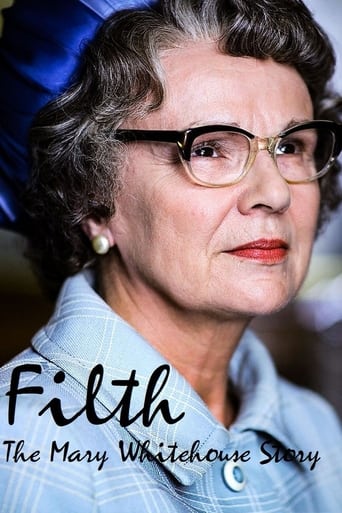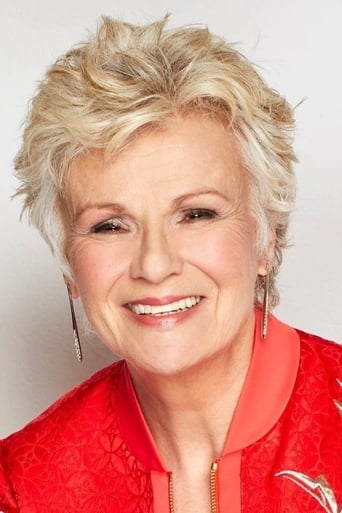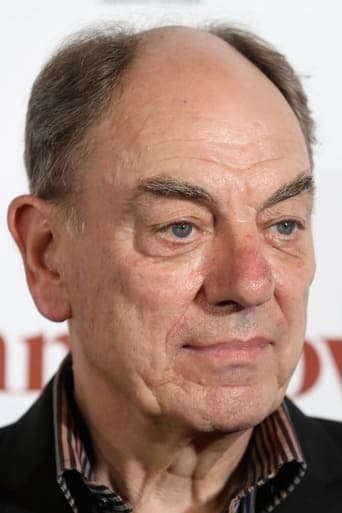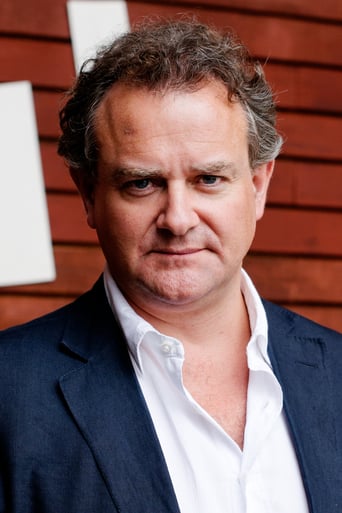

Filth: The Mary Whitehouse Story (2008)
The story of the rise of morals crusader Mary Whitehouse in the UK in the 1960's.
Watch Trailer
Cast


Reviews
Such a frustrating disappointment
People are voting emotionally.
Good concept, poorly executed.
Admirable film.
BBC's "Panorama" has yet to show an episode entitled "The Joy of Bestiality".Now that may be a matter of regret for some but I daresay most viewers are happy that censorship in some for or another is enforced at the national self - styled "centre of broadcasting excellence".Equally your children are unlikely to be confronted by CBBC transmitting "Paedophilia for Kiddies".In some small measure this circumstance prevails because a middle aged provincial schoolteacher took on the might and arrogance of the British Broadcasting Corporation nearly fifty years ago,and despite she and her family being vilified in the liberal press and of course by the BBC's coterie of in - house intellectuals who believe it is their God - given duty to shock us proles and mock our chavvish bourgeois morality. The D.G. of the BBC at the time was the megalomaniacal Sir Hugh Carleton - Greene who resisted any whiff of censorship with a rage Pavlov's Jack Russell would have been proud of. But,unbelievably,the peasants who supported Mrs Whithouse made up a significant proportion of his viewing figures and her steely determination - with the indefatigable support of her husband who was himself the victim of an appalling campaign of mockery by those oh - so - smug writers and producers who shamefully seized on the fact that he was involved(although blameless) in a fatal Traffic Accident at the height of his wife's campaign. Clearly quite mad it is a matter of shame that Carleton - Greene was able to hang onto his job for so long. But sometimes it does appear that God is on the side of the small battalions because Mrs Whitehouse won her personal war of attrition and the D.G. was forced to step down. His hatred of censorship did not extend to giving his opponents the right to reply,a nicety he did not lose any sleep over. In "Filth - the Mary Whitehouse story",Mrs Whitehouse is portrayed as a Mrs Grundy for the 1960s,the sort of woman who would place a cover over the legs of her piano. In settling for parody the producers have been fair - minded as the D.G. himself is made out to be a foul - mouthed, sexist skirt - chaser who presumably - we are meant to believe - wouldn't last ten minutes in the 21st century diversity - centred BBC.Well,maybe. Miss Julie Walters gives her considerable all in the title role,falling just the right side of caricature although her Brummie accent thickens considerably when the actress wishes to patronise. This is just an old battle in an old war now of course but,just occasionally,the Whitehouse Spirit resurrects itself when some overpaid oaf steps over the line and outrages the peasants(Viz:- Ross and Brand last year)and the Corporation is forced to rattle a few sabres. But,generally speaking we get the broadcasting media the "Guardian" readers deserve and the rest of us can either like it or lump it. I must admit that generally I choose to lump it.
This account of the transformation of an ordinary suburban mum and art teacher into a controversial national figure is a lot better than it might have been. Julie Walters as Mary captures her ordinariness and her determination. She is much helped by Alun Armstrong's subtle performance as Mary's supportive if sometime baffled husband Ernest. Hugh Bonneville though at times rather Basil Fawlty-ish as the progressive but arrogant BBC director-general Hugh Greene provides an admirable foil (they never actually meet).Mary Whitehouse started her campaign to clean up television (originally unfortunately named "Clean Up National Television") after seeing a rather dull discussion program on pre-marital sex broadcast by the BBC in the early evening. Despite widespread opposition she developed a taste for being in the public eye, and was an active promoter of TV censorship for the next 30 years. The film credits her with forcing Greene's resignation, though others claim the real issue was Greene's failure to get along with Lord Hill, the oleaginous BBC chairman after 1967. Certainly Greene's philosophy on broadcasting was completely opposed to Mary's, and it has to be said that it was partly due to her that the BBC became less adventurous in the face of her attacks, some of which were downright silly, the attacks on "Dr Who" and the Beatles's lyrics for example. With all respect to her son Richard, who has a review on this page, she may have been serious and sincere, but she represented and aroused the forces of bigotry, ignorance and prejudice. The worst that can be said of Greene is that he did not handle her very well. Later directors-general, including his immediate successor Charles Curran were better at it. Even so she had a chilling effect on British television.This program goes fairly easy on Mary and does not fail to point out that Greene and other opponents often over-reacted. She had imitators elsewhere, Patricia Bartlett in New Zealand and Fred Nile in Australia for example, and of course the US is full of anti-smut crusaders. Unlike the US, Britain's media is rather centralized – the BBC had a monopoly in TV until 1956 and there was a duopoly with ITV until the 1980s – and this gave someone like Mary unwonted influence. The atmosphere of the sixties is wonderfully re-created and the BBC has to be congratulated for its even-handed telling of a story very painful to some broadcasters.
Mary Whitehouse, who campaigned tirelessly to rid TV and cinema of the type of stuff I thrive on, is given a fair shake in "Filth - The Mary Whitehouse Story". Julie Walters, of "Educating Rita" fame, plays the woman as a well-meaning mother and educator who became increasingly appalled by any entertainment that didn't mesh with her puritanical take on life. Outraged by the new sexual permissiveness of the 60's, as depicted by the BBC, she waged a decades-long campaign that successfully put the brakes on much of what would now be considered typical TV fare for teenagers and adults. Most annoying aspect of this woman was that stupid people (plenty of them) bought into her moralistic hogwash and happily signed her petitions to ban or restrict anything she deemed corrupting; even "Dr. Who" did not escape her criticism. Despite what could have been a dour, hateful piece, there is a comical edge to "Filth..."that is represented by Mary's ongoing battle with the BBC's Sir Hugh Greene (Hugh Bonneville), a fellow I found immensely likable for his blatant rudeness, lechery, and foul-mouthery, not to mention his undying desire to deflect the missiles of censorship. Bonneville is great as the larger-than-life Greene and adds great bounce to the drama. The world is still filled with Mary Whitehouses who want to censor our movies, ban the filth we love so much on the internet, and launch witch hunts and obscenity trials ("Good Morning, Paul Little!") against unsuspecting artists. The difference between today's Mary Whitehouses and the original is that Mary, a card-cartrying prude, was at least sincere and consistent in her moral outrage. Today's opponents of "filth" are called politicians and preachers, and their outrage is fueled by their lust for votes, not a "better" world.
STAR RATING: ***** Saturday Night **** Friday Night *** Friday Morning ** Sunday Night * Monday Morning Early sixties Britain is still a fairly innocent place and Mary Whitehouse (Julie Walters), a suburban local art teacher and church-goer, lives a dainty little English existence in her quiet, dainty little Midlands village. But she becomes outraged by what she sees as declining standards on British TV, with more regular, casual bad language, sex talk and violence. The film portrays her real life crusade to 'clean up TV', bringing her into conflict with Hugh Greene (Hugh Bonneville) the new Programmes Commissioner at the BBC, who's moving with the times more and showing programmes more suited to the changing social attitudes.It's interesting to note what a puritanical society we used to be not really so long ago, especially when we comment on the Americans and their prudish standards they still have on mainstream TV. Maybe it's the age I've been raised in but I've always been one for freedom of expression and mature adults being allowed to see what they want, so Mary Whitehouse was never a character that was going to agree with me. But even if you think her campaigns were misguided, you have to admire her determination and conviction of her will, which this very well made TV drama has portrayed.The main thing that drives it is two superb lead performances. In the title role, Walters gives it her all as the quaint English lady with an unwavering moral compass who is forced to come to terms with society's changing ideals, attitudes, morals and beliefs while leading her campaign and similarly Bonneville is also great as the arrogant TV chief who bites off more than he can chew with the little guy.Both the characters are very well written too, along with the script, which really gets you involved with the story, which is engaging and enthralling but refreshingly humorous, too, although in a manner risqué enough, ironically, to get Mrs Whitehouse up in arms about. ****




